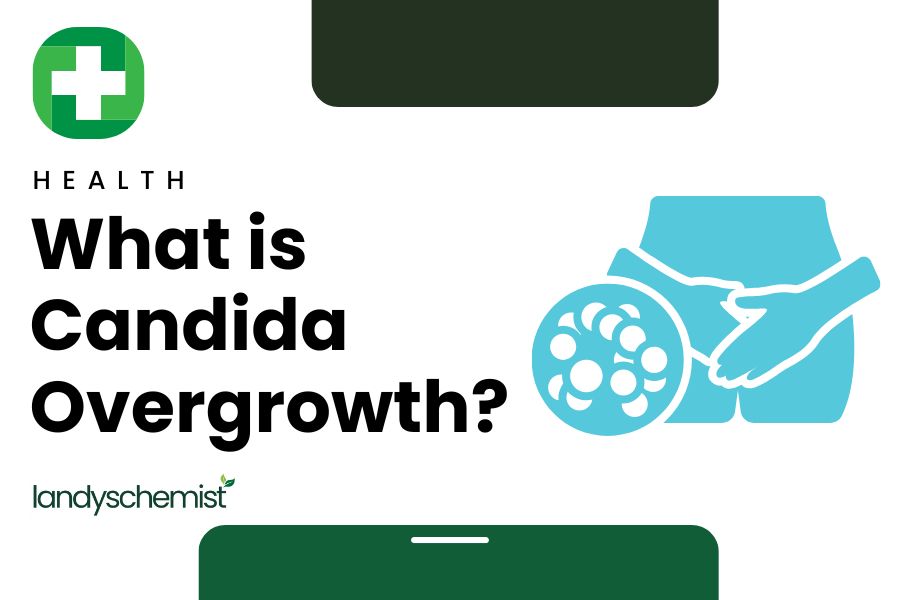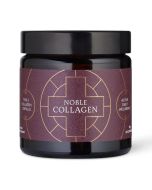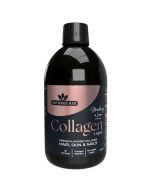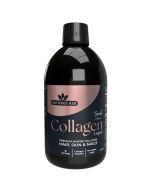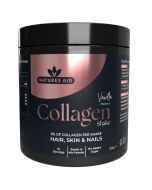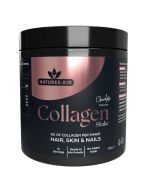
The Ultimate Guide To Collagen & Collagen Supplements
Collagen has long been an area of interest for both health and beauty sectors, and has been much discussed in regards to skincare and age-related medical issues. Collagen supplements are taking the world by storm and are quickly rising to the top of best supplement lists. Use of collagen supplements is increasing at such a rapid rate that the US oral collagen industry’s value is set to double to $8bn (£5.85bn) by 2027.
There are a whole host of purported benefits to taking collagen supplements. But while there have been some credible studies, there are still some unknowns and untruths circulating that we will rectify in this ultimate guide to collagen. We'll also recommend collagen supplements if you decide that they are right for you.
What Is Collagen?
Collagen is the most abundant protein in our bodies. There are actually 28 types of collagen and each serves a vital function. These include:
- providing our skin with structure,
- strengthening our bones,
- replacing dead skin cells,
- and making up the main component of our connective tissues.
Collagen is sometimes referred to as the “glue” of our bodies as it helps hold it together. As we go into more detail about it below, you’ll begin to understand why and how.
What Does Collagen Do?
Collagen serves as one of the key building blocks for our entire body. It holds everything together and makes up about 75% of the dry weight of our skin. You will find collagen in your bones, muscles, skin and blood, which is why it is so important to a healthy, functional body.
Collagen is produced naturally in the body by combining amino acids, the building blocks of proteins found in food. These amino acids include proline and glycine, which maintain and repair our bones, skin, hair, muscles, tendons, and ligaments, while also providing our skin with elasticity, or stretchiness.
As we age, collagen breaks down and it gets more difficult for our bodies to produce more. This is why collagen supplements are so popular as they are an easy way to remedy the natural loss of collagen due to ageing.
How Do We Prevent Collagen Loss?
Our collagen levels start dropping from our mid 20s. Even though this process is natural it can get speeded up by lifestyle and environmental factors, such as sun exposure, smoking, and poor diet. This can lead to increased signs of ageing, as well as collagen-related diseases.
This degenerative process is the cause of some of the signs of ageing, including wrinkles, sagging skin, and joint pains due to weaker or decreased cartilage.
Collagen-related diseases most commonly arise from a combination of either genetic defects, poor intake of collagen-rich foods, nutritional deficiencies and digestive problems affecting production (synthesis) of collagen.
With a varied and balanced diet
Thankfully, collagen loss can be rectified through a combination of methods. Firstly, a healthy, balanced diet is the most important factor in the production of collagen as it is produced naturally in our bodies.
To produce collagen, our body needs:
- Proline, which is found in egg whites, dairy, cabbage, mushrooms, and asparagus
- Glycine, which is found in pork skin, chicken skin, and gelatin, and a variety of other protein-rich foods
- Vitamin C, which is found in citrus fruits and bell peppers
- Zinc, which is found in beef, lamb, pork, shellfish, chickpeas, lentils, beans, milk, cheese, and nuts and seeds
- Copper, found in cocoa powder, cashews, sesame seeds, and lentils
With Collagen Supplementation
Secondly, by taking collagen supplements you can make up the nutritional difference in your diet. Many different collagen supplements exist in the market and some are aimed at supplementing specific proteins that we may not produce enough of. If you know there is something in particular that your diet is lacking, make sure to find the supplement that is best suited for you and will provide you with the necessary nutrients.
Benefits Of Collagen
Now we know what collagen does and the steps we can take to prevent its loss, we can examine the benefit of collagen. There have been a variety of studies into collagen and it has been shown to have significant positive effects on our skin, hair, joints, bones, and more.
Skin
Our skin is the main beneficiary of collagen. As we age, collagen production declines and we will notice looser skin, more wrinkles and less elasticity. Boosting collagen levels can help skin look firmer, increase smoothness, and help skin cells renew and repair quicker.
There have been many studies into the skin benefits of collagen. One found that using 2.5 - 5 grams of collagen hydrolase improved skin elasticity, skin moisture, dryness and skin roughness in women aged 35 -55, all with little-to-no side effects.
Hair
Collagen is also an important part of our hair, teeth, and fingernails. For hair in particular, it’s possible that collagen can help with hair growth. Adding collagen into your diet regimen can help keep your nails strong and possibly reverse signs of hair loss, though this research is still in its infancy.
Joint Health
As we get older, we lose collagen which affects our tendons and ligaments. Consequently, we move with less ease, feel muscular stiffness, and can suffer from swollen joints and more. There is some evidence to suggest that collagen supplements can help with restoring or preventing the deterioration of the cartilage in the joints.
One review found that using collagen supplements helps promote joint health and potentially restore some bone density in people with osteoporosis and osteoarthritis. The review also showed that it helped reduce joint pain.
Bone Health
Collagen makes up a significant amount of our bone structure and helps keep bones strong. Bones can become weaker as collagen production slows and it negatively affects the support they receive. Studies have shown that collagen supplements significantly increase bone density and reduce bone degradation, making it particularly beneficial for those who have noticed a decrease in their bone health.
Not All Methods Of Getting Collagen Are Equally Effective
Different methods exist to administer collagen but not all of them are effective. Topical applications to our skin are not ideal as collagen does not absorb well.
Collagen supplements are a more reliable way of getting a boost of this nutrient. They are available as powders, capsules, or liquids so you can add them to smoothies or drinks, as well as taking them as a daily capsule. This should ensure that the supplement is properly ingested and has the full effect desired.
Do Collagen Supplements Work?
Many of us do not get enough of the amino acids required to produce collagen in our diet so supplements are a viable option to counteract this. Collagen supplements are seen as generally safe to consume and have little-to-no side effects. However, it is advised that you talk to a doctor before taking any new supplements.
Mild side effects of collagen supplements can include:
- diarrhea
- a general feeling of heaviness in the stomach
- rashes
If you experience any symptoms you should stop taking your supplements immediately. Otherwise, in most adults, taking collagen supplements should not pose any significant health risks.
Should I Take Collagen Supplements?
The first thing to consider is how your diet and lifestyle is affecting your collagen production. If you smoke, have an unhealthy diet, and spend too much time in the sun, then adding a collagen supplement to your diet may not produce any significant health changes. It would be advisable to make changes to your lifestyle first before starting on supplements.
However, should you already have a healthy lifestyle but are noticing signs of ageing that could be combated by collagen supplements, then it should be safe to start taking them. Collagen’s role in supporting the health of our skin, hair, joints, and bones is well noted but the effects of supplements could take anywhere from a few weeks to months before noticeable changes are evident.
If you decide to try collagen supplements, make sure that the product you choose provides a good absorption of active ingredients and is made from natural ingredients. You will be able to purchase collagen supplements online or instore from your local pharmacy and should be able to find ones that match any specific dietary requirements.
By Neesha Desai, Pharmacist
Disclaimer
The products offered are not intended to diagnose, treat, cure, or prevent any illness or disease, or replace the advice of a medical professional. Results are not guaranteed and may vary from individual to individual.


